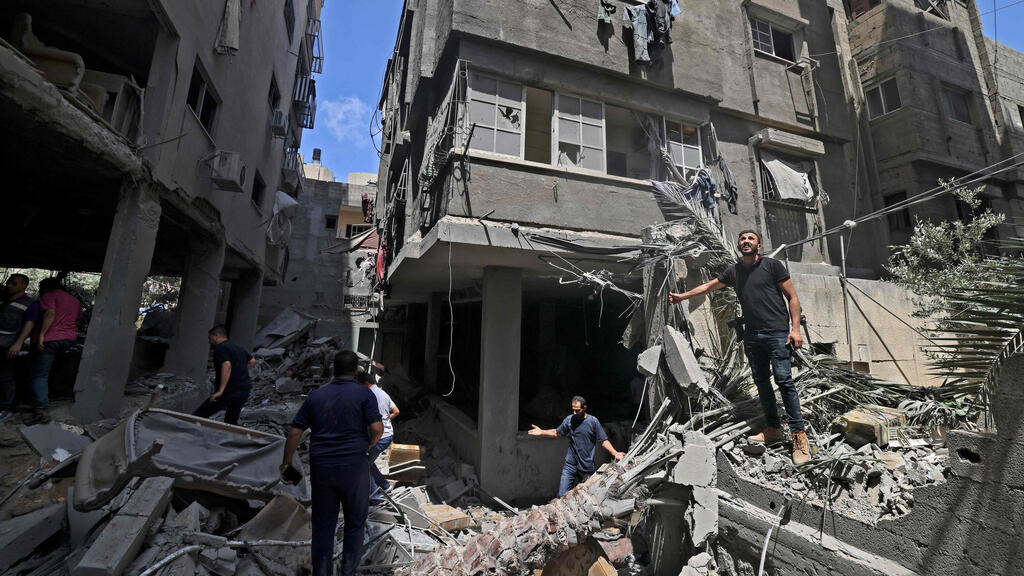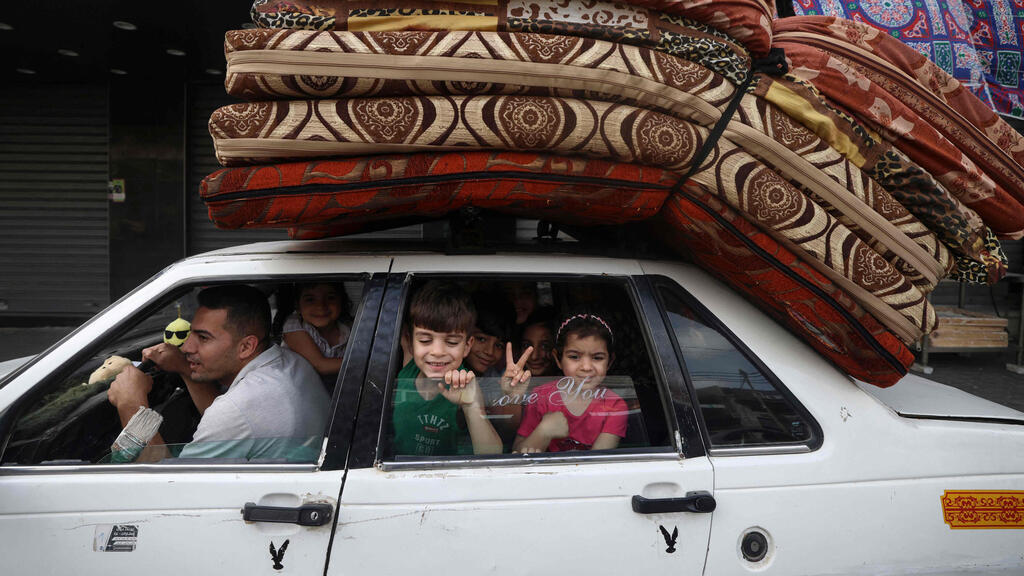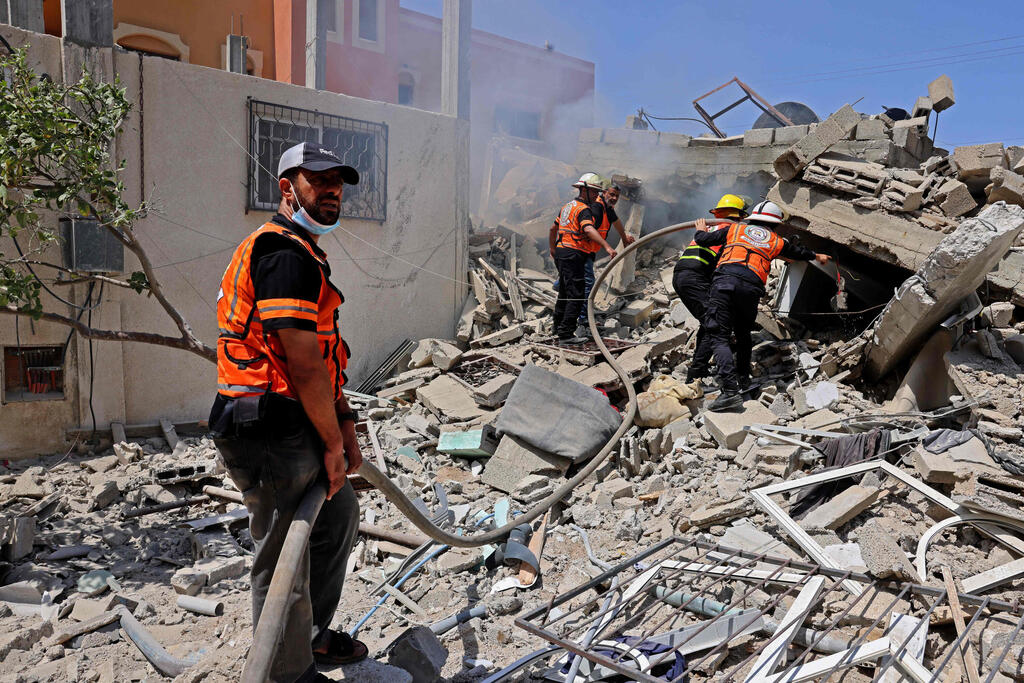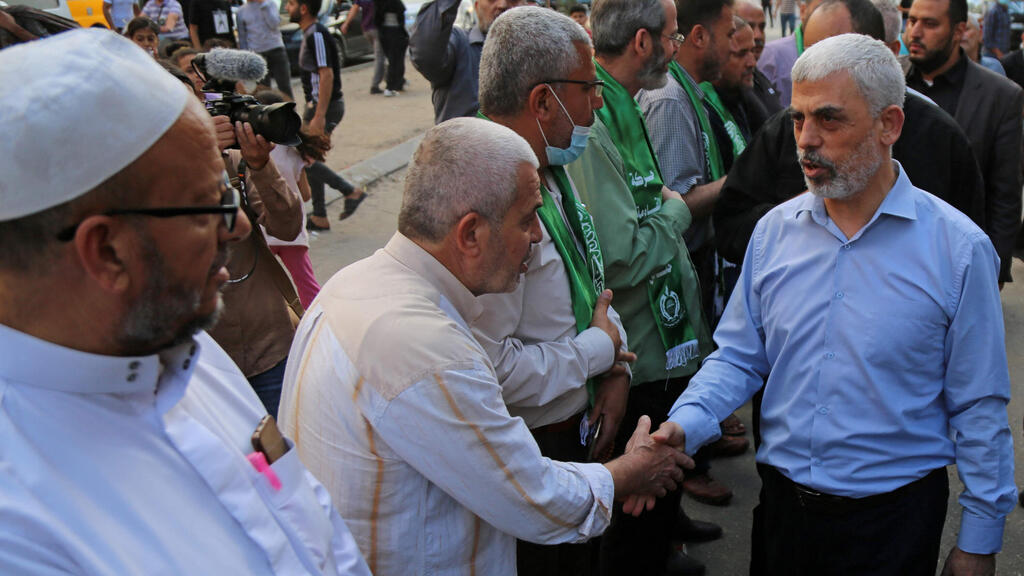Some residents of the Gaza Strip are expressing exhaustion at the seemingly endless cycle of violence with Israel, whose latest outbreak ended with a mutual and unconditional ceasefire Friday morning after 12 days of IDF strikes in Gaza and waves of rocket fire on Israeli towns and cities.
"Both sides lost," says T., a resident of the Zaytoun neighborhood of Gaza City.
4 View gallery


Gaza residential buildings destroyed in Israeli strikes during 12 days of fighting in May
(Photo: AFP)
"People here expect no more than two or three years of calm before another round of fighting breaks out. While many in the Strip are furious when they hear the word 'Israel', we no longer have any strength for fighting," he says.
The cycle of violence began when the Hamas terror group seized control of the coastal enclave in 2007.
The move, which saw Hamas oust Palestinian President Mahmoud Abbas's Fatah party in a bloody coup, led a year later to the first of four wars fought with Israel across the Gaza border, causing massive destruction and loss of life.
Now some Gazans were also calling on Israel to directly aid for reconstruction to them and not offer assistance through Hamas, which they fear will divert financial aid to rebuild their military capabilities and not civilian infrastructure.
"Hamas lost its military capabilities but people here are afraid to speak out, especially now," says T.
"My entire family had to leave their homes in the western part of the city and seek shelter in other areas. When they returned on Friday, hours after the ceasefire came into effect, they found their street destroyed although their house remained intact," he says.
4 View gallery


A Gaza family returns home on Friday after the ceasefire with Israel took effect
(Photo: AFP)
S. a 30-year-old man living in Jabalia refugee camp in the northern part of the Strip, says Gaza had just begun to recover from a 2014 war, the third since 2008, when the latest fighting began.
"We have now been set back seven years and people have lost all hope," S. says.
"I wish [Prime Minister Benjamin] Netanyahu would understand he must help the simple people financially and not Hamas," he says.
"Not all Gaza residents support Hamas. We have been forced into this war."
Civilian projects were started following the 51-day war in 2014, including the construction of a hospital near the Erez Crossing between Israel and Gaza.
The medical center, which was being built by an American organization, contained advanced technological equipment never before seen in the Strip.
4 View gallery


The aftermath of an IDF strike in Gaza during the latest round of fighting that ended Friday
(Photo: AFP)
Israel had also approved the construction of a gas pipeline to supply Gaza's only power station with fuel, a move that would have ensured an uninterrupted flow of electricity to Gazan homes.
During the recent fighting, electricity was available for no more than four hours a day, severely curtailing the supply of water that is electrically operated.
Now Gaza residents fear that such vital infrastructure programs will be postponed and that huge inputs of financial aid will be needed to rebuild the Strip after the massive destruction caused by IDF strikes an effort that would last for years.
4 View gallery


Hamas leader Yahya Sinwar talking to Gaza residents on Friday, after he emerged from the underground bunker he lived in during the fighting
(Photo: AFP)
On Saturday, Hamas leader Yahya Sinwar emerged from his underground bunker to tour the streets of Gaza City.
He did not make a victory speech and was seen to have only a small number of civilians rallying in his support.

